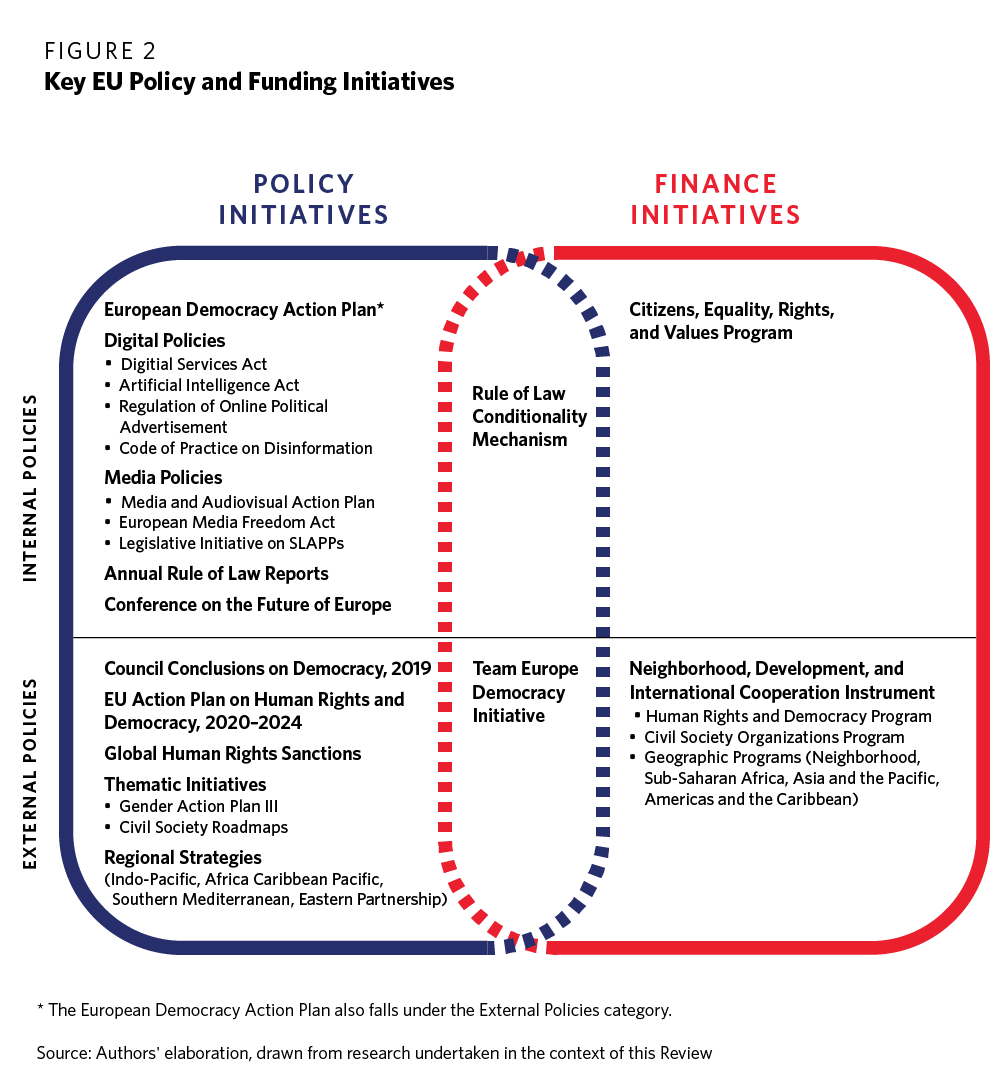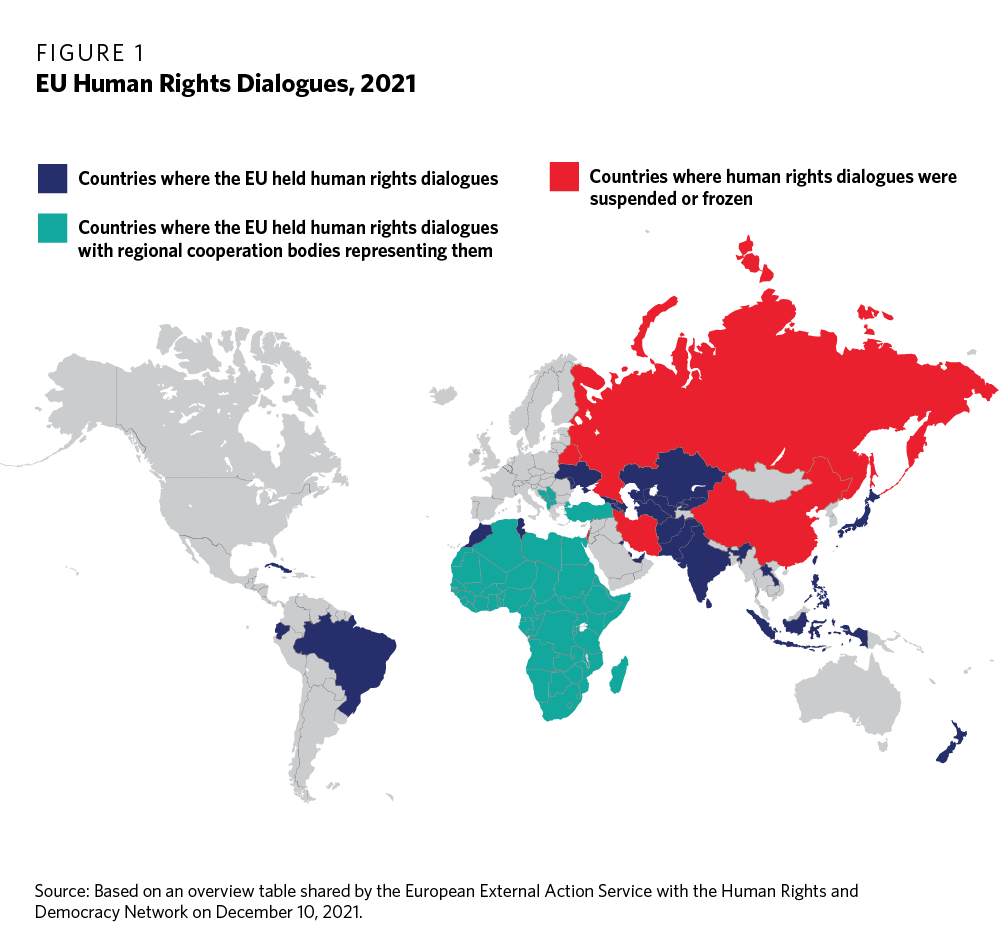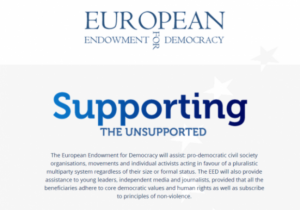
Developments in 2021 may have laid a new foundation for a more assertive approach to democracy support on the part of the European Union, a new analysis suggests.
The year also saw attempts to inject more geopolitical overview into funding on the ground, although progress in this was still modest, according to European Democracy Support
Annual Review 2021, a report from Carnegie Europe and the European Partnership for Democracy.
The EU created or signed up to several new commitments like the Team Europe Democracy framework, and member states made commitments at the Summit for Democracy, while the EU also set in place the funding to support its new Democracy and Human Rights Action Plan, note authors Richard Youngs, Ken Godfrey, Ruth-Marie Henckes, Erin Jones, Elisa Lledó and Kinga Brudzinska:
These could prove to be the foundations of stronger and more effective democracy support in future years. It might also be the case that these foundational moves fail to lead to tangible policy upgrades in the years ahead, or that only a small number of member states see value in contributing to the next phase democracy agenda. If this happens, European commitments to improve democratic support made in 2021 might turn out to represent a false dawn.

The review identifies several key developments in 2021:
- The EU and several of its member states launched new funding arrangements to support democracy projects around the world. There were modest increases in the amount of money devoted to democracy and human rights by some governments but decreases by others.
- The EU stepped up its use of democracy and human-rights sanctions while still refraining from exerting strongly critical pressure in relation to many notable cases of democratic regression and serious human-rights crises. It also began to deploy a wider range of democracy-support efforts within its own borders. T
- he wider international context was both boon and bane. In particular, the new U.S. administration gave a fillip to European democracy support while the COVID-19 pandemic was a complicating factor.
- The year saw some strengthened EU-level commitments to supporting and defending democracy, but also signs of democracy and human rights slipping down the order of European geopolitical priorities.
 Germany’s new coalition government has said it will develop a democracy-support policy by 2023. The coalition agreement also commits the government to increasing resources and staff for human rights policy, a more feminist foreign policy, boosting support for political foundations’ work on human rights and democracy, and increasing funds for the European Endowment for Democracy [a counterpart to the US-based National Endowment for Democracy – NED], now in its eighth calendar year, the report adds:
Germany’s new coalition government has said it will develop a democracy-support policy by 2023. The coalition agreement also commits the government to increasing resources and staff for human rights policy, a more feminist foreign policy, boosting support for political foundations’ work on human rights and democracy, and increasing funds for the European Endowment for Democracy [a counterpart to the US-based National Endowment for Democracy – NED], now in its eighth calendar year, the report adds:
- The EED spent just over €30 million on democracy support. Over 40 percent of this went to independent media, with many grants providing core funding that enables outlets to continue to operate in challenging environments.
- The EED enhanced coordination efforts relating to Belarus, acting as a basket fund to support the International Accountability Platform for Belarus.
- Beyond grant-making, the endowment contributed to knowledge-sharing and policy debates through many events during the year, including partnership events such as Democracy Day and Difference Day, and a series of closed-door events that brought together activists with stakeholders from EU institutions and member states.
- During the second half of the year, in the run-up to the Summit for Democracy, the EED together with fourteen other democracy-support organizations on both sides of the Atlantic developed and published the Five Messages for the Summit for Democracy document.







